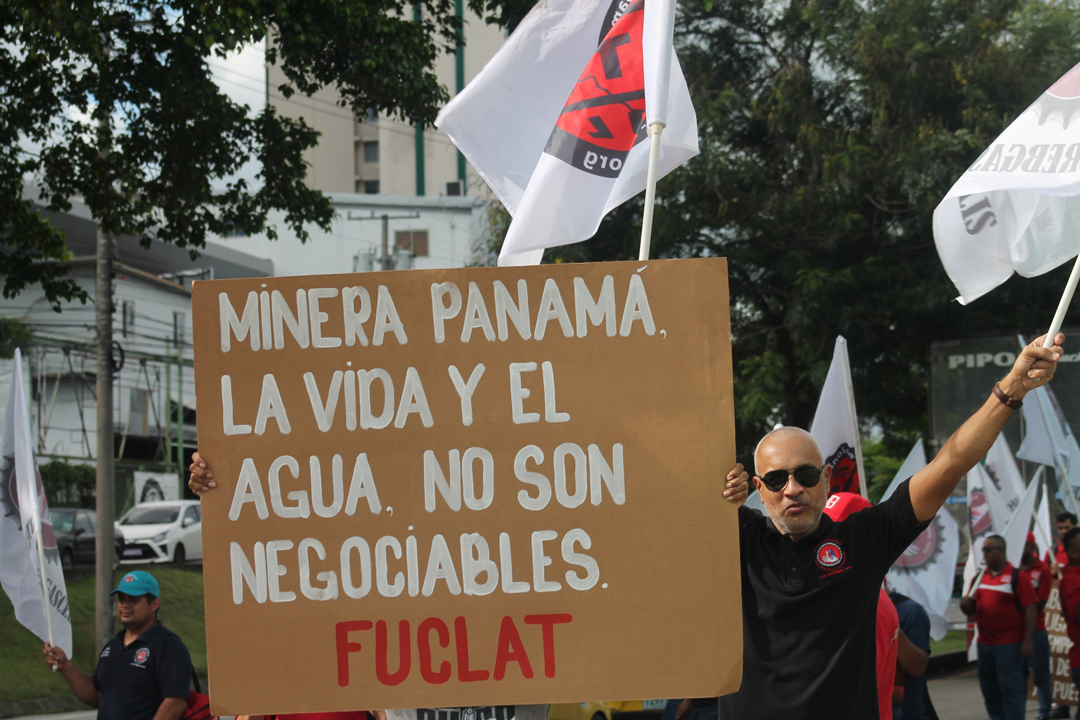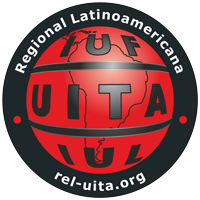All that glitters is not gold
The image Canada likes to present of itself to the world is one of a country concerned with the defense of human rights and the environment. It is perhaps by chance, then, that in recent weeks major Canadian corporations are under fire for doing precisely the opposite.
Daniel Gatti
07 | 11 | 2023

Protests in Panama | Photo: Marcos Llorente – FUCLAT
First Quantum Minerals is a Vancouver-based multinational corporation that mines gold, copper, cobalt, and other minerals in Africa, Latin America, certain European countries, Australia, and Turkey.
It focuses primarily on copper, which accounts for about 80 percent of the company’s revenue.
A copper mine it owns in the province of Colón, in Panama, is proving to be much more than a headache for Minera Panamá, the First Quantum subsidiary that runs the mine.
The agreement that the Canadian corporation signed surreptitiously with the Laurentino Cortizo government is being rejected in the streets by tens of thousands of Panamanians who denounce the abusive conditions it imposes and the risks that the project poses for local communities and the environment.
Other Canadian mining companies have been reported to the United Nations (UN) for “corporate misconduct” in the implementation of some 40 projects in 9 countries of Latin America and the Caribbean.
The complaint was brought by over 50 Latin American social organizations under an effort aimed at “unmasking” Canadian companies and their government and exposing their role in human rights abuses and environmental violations in those countries, according to Amazon Watch, the organization that launched the initiative.
In their complaint, these organizations name 16 Canadian mining companies, but also banks from that country, as funders of the 37 projects, and the government itself, as the promoter of an “economic diplomacy” policy that includes supporting the corporations’ plans.
One of the reports presented to the UN by these social organizations and groups representing indigenous communities refers to the actions of these multinational corporations in the Amazon territories of Brazil, Colombia, Ecuador, and Peru.
In these four countries, which account for 85 percent of Amazonia, the planet’s most biodiversity-rich region, as the document states, Canadian mining corporations are carrying out projects that are contributing to the pillaging of tropical forests, depleting resources such as water, and undermining the social and economic rights of at least 16 native communities.
“My region, Volta Grande do Xingu,” Lorena Curuaia, vice-president of the Iawá community, told the United Nations, “is a clear example of the harmful impacts of mining on ecosystems, indigenous communities, and human rights.”
“The Canadian mining company Belo Sun,” she added, “wants to build the largest open-pit gold mine in the world next to the third largest hydroelectric dam, which has been impacting our lands and our lives for years”.
The complainants are demanding that Canada be required to “pass a comprehensive and mandatory Environmental and Human Rights Due Diligence Law in line with international human rights standards.”
Thus another mask has fallen off a country that in recent years has been playing a not inconsiderable role in the warmongering fever spreading across the western world, which is, in fact, quite unconcerned with any “human rights standard” or environmental protection principle.
